- Home
- Flint Maxwell
Jack Zombie (Book 0): Test Subject 001
Jack Zombie (Book 0): Test Subject 001 Read online
Test Subject 001
A Jack Zombie Short Story
#0
by
Flint Maxwell
Copyright © 2017 by Flint Maxwell
Cover design by CRD
All rights reserved. No portion of this book may be reproduced in any form without permission from the publisher, except as permitted by U.S. copyright law. For permissions email: [email protected]
This is a work of fiction. Names, characters, places, and incidents either are the products of the author’s imagination or are used fictitiously. Any resemblance to actual persons, living or dead, businesses, companies, events, or locales is entirely coincidental.
The author greatly appreciates you taking the time to read his work.
Want More?
Join the Facebook page here:
Flint Maxwell FB Page
Author’s Note
What you have in your hands is a story set in the same world as Dead Haven, the first book in the Jack Zombie series, which will be out in early 2017.
Test Subject 001 tells the tale of how the zombie virus — or ZETA Virus, if you will — came to be. It is a tale of love, death (obviously), and bad decisions made by people who were not in their right mind. This prequel story does not have any of the characters who show up in Dead Haven, but it does happen to take place in the same area — Woodhaven, Ohio, a completely falsified version of my own hometown. I hope you enjoy the story.
Thanks for reading,
F.M.
December 16, 2016
TEST SUBJECT 001
1
Raymond Klein watches as his lab technician wheels in Test Subject 001, and sets it — it, never him or her — on top of a stainless steel table.
Ray’s hand rises to his breast pocket. Inside of this pocket is a picture of a woman. He begins to pull it out, wanting to look upon her face, wanting to see how she used to be, but he cannot.
He mustn’t let the others see him in this state — Not Eddy, not Central. So this finger, inches away from fiddling with the breast pocket, goes to his thick glasses instead. He pushes them up and swipes away the burning tears before they can roll down his cheeks. Raymond Klein is the leader of Project Zenith and any moment of weakness is a moment where someone can undercut him, where someone can swipe his one opportunity out from under him.
Someone like Eduardo Rodriguez.
Through the glass, he sees Eduardo. This man is much better suited for the head of Zenith than he is. Because as far as Ray knows, Eduardo does not have any emotional stakes invested.
But as far as anyone else knows, neither does Ray.
Eduardo, beyond the window, scrunches his face up and turns away from the table. He then glides across the lab room and shouts toward Ray. His voice is muffled by the plexiglass of the biohazard suit he wears. “You ready?”
The lump in Raymond Klein’s throat tells him he is not.
But he nods, putting on a face the head of Project Zenith should wear, then he walks to the small locker room where his protective gear hangs, and he suits up.
2
Twenty-three years before Raymond’s wife was diagnosed with brain cancer, he had met her in a book store on the Northington Strip. Now he was back in that same store. The place was called C & M’s Used Books, and it was owned by a married couple named Claire and Melinda who’d been together much longer than Ray and Jean. Whenever he felt overwhelmed — and boy, did he feel overwhelmed after that doctor’s visit — he would drive down there, grab a book, a cup of coffee, and blow off some steam. The store was nestled between a Starbucks and a Panera Bread, their lights never seemed to be on, and there were no plate-glass windows to showcase the latest and greatest Harry Potter or Twilight. They had Shakespeare, Dickens, King, Vonnegut, and so many more.
The book store was like a home away from home. He liked the way the smell of coffee mingled with the smell of the old leather and paper. He liked the big, cushy chairs he could curl up and get lost in. But most of all, he liked how he could escape from all the troubles in his life. Work, the Missus, and now…brain cancer.
So when he parked his car, watching the crowd of people walk the sidewalk from Starbucks to the Best Buy to Panera Bread to Target, always overlooking the cramped space of C & M’s, he couldn’t help but smile.
He opened the door and all those familiar smells bathed him.
Claire sat on her stool behind the front counter, the newspaper splayed out in front of her. She did not look like she did twenty-three years ago, but who does? Time takes away all we have, and then it gives us brain cancer.
There was no one in the store.
“Ray!” Claire said, looking up.
“How you doing, buddy? Haven’t seen you in…what, a month, two?”
Ray cleared his throat, hoping she couldn’t tell he’d been crying. “Hey, Claire,” he said. “I’m okay. Work’s been busy.”
But that was a lie. Work was always the same. They’d run tests, study animals, fill out lab reports, and go home. Day after day.
“Same old, same old,” Claire said. “I’m glad you stopped in. A guy just dumped off his entire King hardcover collection yesterday. I haven’t put them out yet. Got some gems in there. Good condition, too. Worth a pretty penny.” She smiled, and gave him a wink. “But, of course, I’d be willing to bargain.”
Ray tried to return the gesture, but it was a dud. “No, no King for me today. I was wondering…wondering if you had anything on brain cancer.”
She arched an eyebrow. “Brain cancer?” Then her face twisted, her hand went to her bosom. “Oh God, Ray, are you sick?”
Ray shook his head. “No…it’s Jean.”
Claire shot up out of her stool. “Jean? Oh God, you poor thing.” She wrapped her arms around him.
Ray couldn’t hold it in any longer, he burst into tears — long, drawn-out sobs.
“Hush, hush,” Claire said. “It’ll be okay.”
Then he pictured the doctor, the young man who thought he knew everything, taking Ray by the arm and out into the hall. “Stage Four,” he said. “She hasn’t got much time.”
Ray started to babble. “S-She was having these r-real b-b-bad headaches. Throwing up. I-I-I knew what it was. I knew she was sick, and n-now she’s g-gonna die.”
“Don’t say that, Ray,” Claire said, still holding him. “She might make it. She just might. You wait here, I got just the thing for you. I read it to pieces when my dad got prostate cancer.”
She left, heading into the backroom.
Ray leaned on the counter, tears in his eyes. His vision was blurry, but not so blurry that he didn’t see the book sitting atop the highest shelf behind the counter. It was where C & M kept their most expensive and exotic merchandise. The faded leather seemed to glow, and the words on the spine written in bright silver seemed to shout at him.
REANIMATION by LELAND LECHANCE
Ray looked once to the back room, hearing Claire shuffle around, grunting and she said, “Drats!” as a few books fell on the floor. He looked back to the book, moving as slyly as a cat, and grabbed it off the shelf. Next thing Ray knew, he was a thief and he was heading out the front door, leaving as if he’d never been there.
Later that night, laying in bed with a dying woman he’d loved for nearly a quarter century, Raymond Klein read about reanimated corpses.
3
The tag on her toe reads, TEST SUBJECT 001. Beneath the sheet is only the shape of a corpse to the eyes of Eduardo Rodriguez, but to Ray, it is Jean Klein, and even in death she looks beautiful.
To their right sits a tray full of medical instruments, gleaming in the overhead lights. It is so bright in here, so ho
t, yet it’s not the cause for the sweat covering Ray’s body.
The reason is nerves.
Next to the tray sits a gun as black as the cancer which eventually ate away his wife’s brains. It’s a Beretta M9, standard-issue for an experiment such as Zenith under the floors of the Leering Research Facility. The stuff the researchers study here is not for the faint of heart.
Case in point, the dead woman on the table.
What was once next to the gun is now in Ray Klein’s gloved hand. It is a syringe full of a mucus-yellow liquid. A special concoction of Ray Klein’s own doing.
Eduardo slowly rolls the sheet away from Jean’s head, revealing her face. Ray sees the look of revulsion pass his coworker’s features. Jean is bald, her hair had begun to fall out during a last-ditch effort of chemotherapy, and she eventually shaved it off. Above her left eyebrow is a series of X’s, big and black, from an operation which did nothing but harm. When she was laid to rest, she had worn a wig of white hair and a face of too much make-up. Eduardo was there for her calling hours, that is why Ray removed the wig, why he wiped the makeup off.
Now, she looks like anyone else.
“Let’s get on with it,” Eduardo says. “I’d like to get home before dinner.”
Ray smiles, faintly seeing the reflection of his own eyes in his visor. They are not the eyes of a man under control.
“If this works, my friend,” Ray says, stepping away from the table, “then we won’t be having dinner with our families for a long time.”
And it will work, he thinks to himself.
4
He had gotten the call almost two months after Jean died, but he had dug her up long before then.
Currently, he had her stored in a walk-in freezer in his brownstone’s cellar, the temperature to its coldest setting.
For the past two months, he had tried everything in the book he’d stolen from C & M’s — ancient chants and spells from Haitian witchdoctors, electric shocks to the heart and brain, rituals belonging to satanic worshippers.
None had worked.
He had basically forgotten, given up. But he had not taken Jean to her final resting place. No, he had kept her close. Burying her would be like leaving their love, their life, everything they’d built up, to the worms.
And he didn’t want that.
As he sat in his rocking chair, looking out at the empty street, his cellphone vibrated in the same breast pocket where he kept the picture of his late wife. The sound was so alien and alarming, Ray had nearly fallen onto the hardwood.
“H-Hello?” he said.
“Dr. Klein,” a gruff, distorted voice said. It was a voice he’d both known and didn’t know at all.
“Speaking.”
“Are you ready to come back to work?”
Since Jean had passed, Ray took an extended leave of absence. Fifteen years working at Leering and he’d never gone on vacation nor gotten sick despite coming in constant contact with all types of deadly viruses and pathogens.
He cleared his throat.
Ray had even considered an early retirement, but if he retired, he knew he wouldn’t last long. A noose would call to him, or perhaps a bullet, maybe a steep cliff, his Prius gunning at eighty mph, him behind the wheel.
“I-I don’t know,” he finally answered.
“In about thirty seconds a man is going to come up your front steps and push an envelope under your door. It is classified, do you understand? Classified.”
Ray was a veteran of this whole charade. Debriefings were taken far too seriously, if he were being totally honest. Each time was a disease which could be easily contained. Ebola, Bird Flu, Mad Cow. Yet, if the public knew, all hell would break loose.
“Really, I need more time,” Ray said.
Sure enough, he heard shoes scuffing the brick steps beyond his door. He saw a man in a black suit, sunglasses over his eyes, and an equally black car idling in the street.
“This is different, Dr. Klein.”
“Different how?”
“Open the envelope. I’ll call you in three minutes. I’ll expect your decision.”
The phone clicked, and he brought it away from his face, looking at the screen. The number was unavailable as it always was when these calls came through.
He got up from the chair, picked up the manila envelope.
CLASSIFIED was stamped on the front.
He opened it, smelling the powder which would ignite and set the contents within ablaze in five minutes.
It’s always quicker than five minutes, he thought, remembering the time he almost burned down the kitchen.
But as he studied the contents of the classified, manila folder, Ray’s eyes went from slitted to full-blown.
Full-blown with terror and hope.
He saw the words at the top of the paper. The official name read, ZETA and below that was, also known as, “The Reanimation Virus.”
In a thin, plastic film was a DVD.
Ray shook as he took it out of the covering. Never before had they sent film. Something told him this was a rare case, this was something he had to see to believe.
He took it to his desktop computer around the corner and down the hall, popped it in. What showed up on the screen was something straight from a horror film.
It was recorded by a shaky hand. The quality was by no means top-notch, having been filmed on an old cell phone, but it was not so terrible that Ray Klein couldn’t make out the subject matter.
He saw a dark room lit by a single, dangling bulb. The floor was puddled with what looked like dark water, but as the camera panned closer, Ray saw it was blood. Then the lens focused on a shadowy figure. An old, black man. He was chained to the wall, his shirt missing, his pants torn.
I’m watching a snuff film, Ray thought bitterly. Or torture.
Suddenly, a voice spoke in a language Ray did not understand. It sounded like African or perhaps Central American dialect. Subtitles popped up on the screen.
“This is my grandfather. He was ninety years old when he died two days ago. The village doctor said it was heart failure. I was there. I held his hand as he passed on. I felt his weak pulse turn to no pulse. But somehow my grandfather has risen,” the subtitles read. The speaker talked as if he had rehearsed his lines until he was blue in the face.
Then he got closer to the chained man. A flash of light caught his face. The eyes were milky, glazed over, but somehow glowed a faint yellow. Dirt was lodged in every wrinkly fold of his leathery skin. Some kind of black ooze leaked from the corners of his mouth.
The chains rattled violently as the man arched his body away from the wall.
Ray jumped, his heart thudding in his chest as if he were, in fact, watching some kind of horror movie.
The chained man growled, a low rattling in his throat.
“I do not know what to do. He is violent. He does not talk. He only makes noises like an animal. His temper flares whenever I get close. He is not the grandfather who I knew and loved. He is a monster.”
“Then get away, dummy,” Ray mumbled.
But the video cut off, and cut away to an entirely different scene. This one of better quality. It showed a parking lot only lit by a handful of lights. Whoever held the device walked uneasily beyond a large and looming building. The wind pummeled the microphone.
“I told you I was gonna kick his ass, Doug. I told you I was gonna kick his ass if he started digging in our dumpster again. And this is gonna be proof. You won’t be able to call me a pussy anymore, man.”
The cameraman seemed to pick his pace up, and as he rounded the corner, revealing a dull, green dumpster, he slowed to a stop. A stream of blood flowed down the sloped asphalt, running toward a sewer grate.
“What in the fuck — ” the man said.
Something else could be heard over the wind. It was a wet smacking. Ray was reminded of his morbidly obese Aunt Stephanie, and the way she ate a chicken drumstick in practically one bite.
“Holy shit…are you seeing
this?” the man said.
The video showed a dark boot with a dingy bandana tied around the ankle, but as the man got closer, Ray saw that the boot did not belong to any leg that was attached to a body. It was just a leg dressed in blue jeans, now soaked through with blood. A woman held it like it was the world’s biggest chicken drumstick.
But it was not his Aunt Stephanie.
Her eyes glowed yellow in the bright parking lot lights. Not reflections. Not CGI.
“Lady…” the man said, his voice wavering and losing all of its anger. “Lady…what the fuck?”
She looked up at him, blood and bits of denim and flesh dangling from her mouth.
“Help,” the man said. It came out as a wheeze.
Slowly, she stood up. Her own skin looked loose, graying.
Rotting, Ray thought.
From her open mouth, came a moan, as if the last bits of life were being sucked out of her from some unknown voice. She moved quicker than both Ray and the man holding the camera imagined. In about five quick, lumbering steps, she was on him.
The phone hit the blacktop hard, clattering, picking up the sound of breaking glass. But that’s not all it picked up.
It picked up the man’s screams, the sounds of ripping flesh and gnashing teeth. Then the DVD ended, turning Ray’s monitor blue. He took the DVD out and put it back in its film, and then back in its envelope, which had already started to fizzle.
Adrenaline prickled his skin.
His phone vibrated in his pocket. Right on time.
He jumped again.
“Hello?” he said.
“Your decision, Dr. Klein,” the same distorted voice answered.
Ray walked out of the computer room and back into the living room with its big, picture window. Outside, the idling black car was gone.
“I-I have so many questions,” he said.

 The Dead Collection Box Set #2: Jack Zombie Books 5-8
The Dead Collection Box Set #2: Jack Zombie Books 5-8 Midwest Magic Chronicles Boxed Set
Midwest Magic Chronicles Boxed Set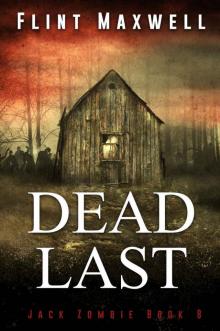 Dead Last: A Zombie Novel (Jack Zombie Book 8)
Dead Last: A Zombie Novel (Jack Zombie Book 8) Decimated: A Post-Apocalyptic Thriller (Taken World Book 3)
Decimated: A Post-Apocalyptic Thriller (Taken World Book 3)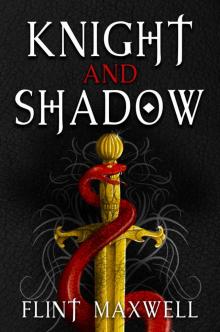 Knight and Shadow
Knight and Shadow Beneath: A Post-Apocalyptic Thriller (Taken World Book 4)
Beneath: A Post-Apocalyptic Thriller (Taken World Book 4)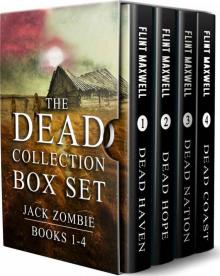 The Dead Collection Box Set #1: Jack Zombie Books 1-4
The Dead Collection Box Set #1: Jack Zombie Books 1-4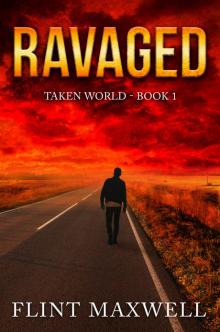 Ravaged: A Post-Apocalyptic Thriller (Taken World Book 1)
Ravaged: A Post-Apocalyptic Thriller (Taken World Book 1)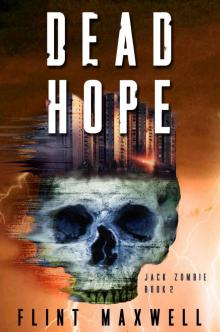 Jack Zombie (Book 2): Dead Hope
Jack Zombie (Book 2): Dead Hope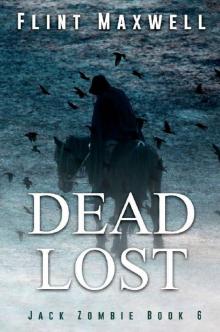 Dead Lost
Dead Lost Midwest Magic Chronicles Box Set
Midwest Magic Chronicles Box Set The Midwest Witch: The Revelations of Oriceran (Midwest Magic Chronicles Book 1)
The Midwest Witch: The Revelations of Oriceran (Midwest Magic Chronicles Book 1)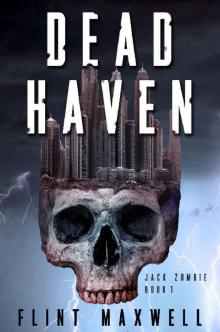 Jack Zombie (Book 1): Dead Haven
Jack Zombie (Book 1): Dead Haven The Midwest Wanderer
The Midwest Wanderer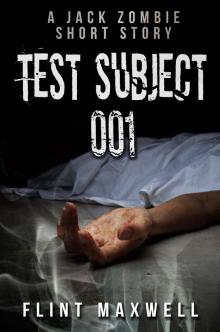 Jack Zombie (Book 0): Test Subject 001
Jack Zombie (Book 0): Test Subject 001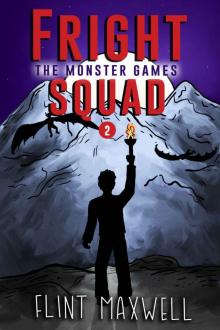 The Monster Games (Fright Squad Book 2)
The Monster Games (Fright Squad Book 2)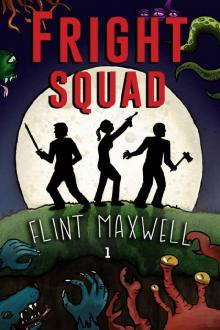 Fright Squad
Fright Squad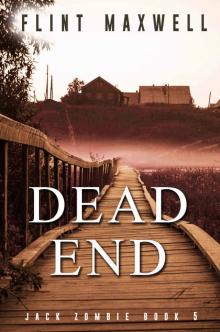 Jack Zombie (Book 5): Dead End
Jack Zombie (Book 5): Dead End The Monster Games
The Monster Games The Midwest Wanderer: The Revelations of Oriceran (Midwest Magic Chronicles Book 2)
The Midwest Wanderer: The Revelations of Oriceran (Midwest Magic Chronicles Book 2)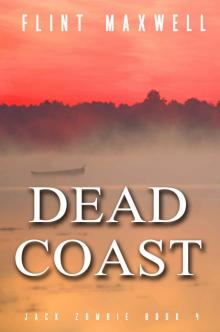 Jack Zombie (Book 4): Dead Coast
Jack Zombie (Book 4): Dead Coast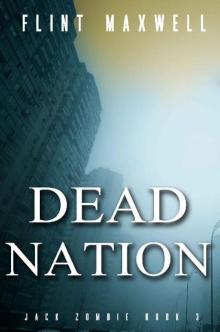 Dead Nation: A Zombie Novel (Jack Zombie Book 3)
Dead Nation: A Zombie Novel (Jack Zombie Book 3)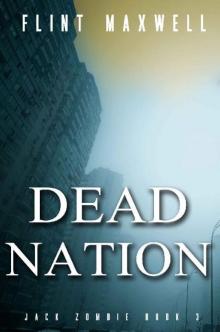 Jack Zombie (Book 3): Dead Nation
Jack Zombie (Book 3): Dead Nation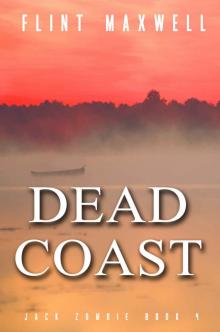 Dead Coast: A Zombie Novel (Jack Zombie Book 4)
Dead Coast: A Zombie Novel (Jack Zombie Book 4)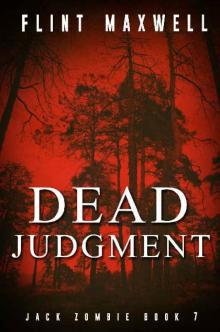 Dead Judgment
Dead Judgment Test Subject 001
Test Subject 001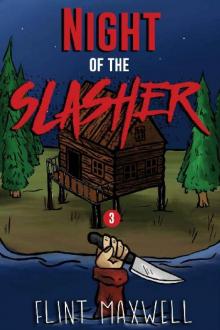 Night of the Slasher
Night of the Slasher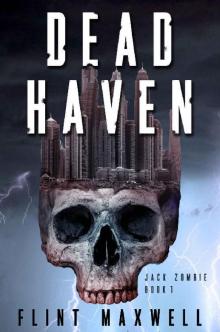 Dead Haven (Jack Zombie Book 1)
Dead Haven (Jack Zombie Book 1)